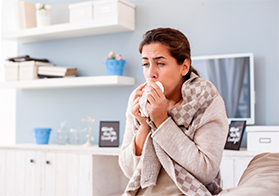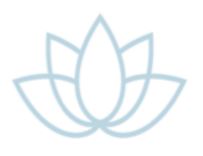Post-Nasal Drip Treatment in Chapel Hill, NC
What Is Post-Nasal Drip?

The glands in your nose and throat continually produce mucus to moisten nasal membranes, trap and destroy harmful pathogens, and prevent infection. Normally, this mucus is combined with saliva and unconsciously swallowed or blown from the nose. Post-nasal drip is a condition in which the glands produce excess or thicker mucus than what is necessary. It is often described as an accumulation of mucus in your throat or a sensation of mucus dripping from the back of your nose.
There is a myriad of issues that can cause post-nasal drip, including allergies, the common cold, and sinusitis. Treating post-nasal drip and its subsequent cause is important to clear excess or thick mucus and restore proper respiratory function. To meet with a healthcare practitioner in Chapel Hill who specializes in post-nasal drip treatment, call (919) 301-0841 or contact Dr. Bhavna Vaidya-Tank online.
Post-Nasal Drip Causes
One of the most common causes of postnasal drip is an allergy. An allergen—such as pollen or dust—triggers your body to release histamine. Histamine is a chemical that elicits an immune response; part of this response is an increase in mucus production.
Other post-nasal drip causes can include:
- Deviated septum
- Cold temperatures or dry air
- Common cold
- Airborne irritants, such as cleaning products or perfumes
- Sinusitis
- Spicy foods
- Bacterial infection
- Hormonal changes, such as pregnancy or menopause
- Certain medications for birth control or blood pressure
- Gastroesophageal reflux disease (GERD)
- Anxiety or stress
- Objects stuck in the nose
- Excessive use of nasal sprays
Post-Nasal Drip Symptoms
While the feeling of needing to clear your throat or swallow is often the most common symptom of post-nasal drip, there are other symptoms, including a sore and scratchy post-nasal drip sore throat, that can be particularly bothersome.
Other frequently reported post-nasal drip symptoms include:
- Cough that worsens at night
- Nausea
- Loss of voice
- Bad breath
- Chest pain
Post-Nasal Drip Home Remedies
In many cases, your post-nasal drip can be controlled with natural solutions and over-the-counter remedies. Removing, thinning, or drying out mucus is typically the focus of these medications and remedies for post-nasal drip.
Post-nasal drip medications may include decongestants, antihistamines, and nasal sprays. Natural treatment for post-nasal drip may involve changes to your living environment, dietary supplements, and modifying daily behaviors. These home remedies include:
- Staying hydrated by drinking warm or hot liquids
- Frequently dusting and vacuuming your house
- Using a vaporizer or humidifier
- Rinsing your nasal passageways with a saltwater solution
- Covering your mattresses and pillowcases with dust mite proof covers
- Regularly changing air filters on your heating, ventilation, and air conditioning systems
- Regularly washing your sheets, pillowcases, and mattress covers in hot water
- Sleeping with your head slightly elevated to allow your sinuses to drain properly
- Showering after spending extended time outdoors
- Taking vitamins, such as ginger, bromelain, vitamin C, or zinc
It is also recommended that you reduce your exposure to potential allergens whenever possible, and if needed, take your allergy medication daily.
Post-Nasal Drip Medical Treatment
If you are experiencing severe or chronic postnasal drip symptoms, or your condition is not alleviated by over-the-counter measures, it is important to meet with a healthcare practitioner. A physical examination of the ears, nose, and throat will be conducted, and a computed tomography (CT) scan or X-ray may be requested to determine the underlying cause of your condition.
Depending on the forces driving your postnasal drip, your practitioner may recommend:
- Antibiotics
- Nasal steroids
- Allergy shots
- Prescription-strength decongestants and antihistamines
If your birth control or blood pressure medication is to blame for your post-nasal drip, your practitioner can recommend alternative prescriptions. You should never cease medication usage without first speaking with a professional. Additional medication, surgery or other measures may become necessary depending on the root cause of your post-nasal drip. These treatment courses will be discussed in detail with your practitioner.
If you experience a post-nasal drip cough, nasal drainage, or other related symptoms, meet with a practitioner in Chapel Hill who can provide much-needed relief. Call (919) 301-0841 or contact Dr. Bhavna Vaidya-Tank online.
Family Wellness Clinic & Regenesis MD
Address
8020 Creedmoor RdRaleigh, NC 27613
(919) 301-0841
www.regenesismd.com


